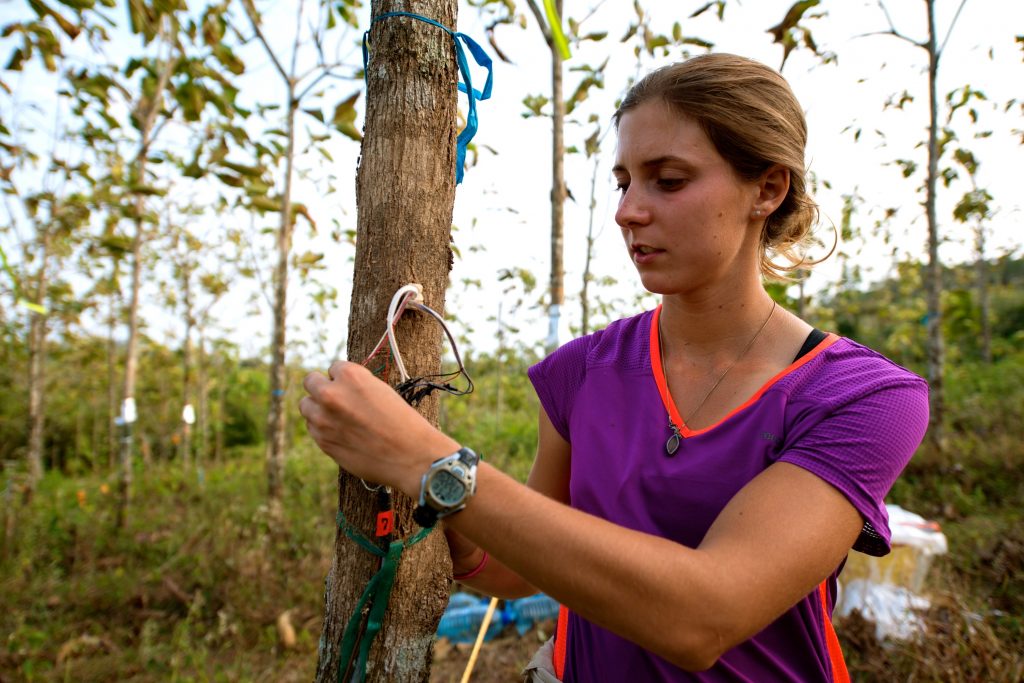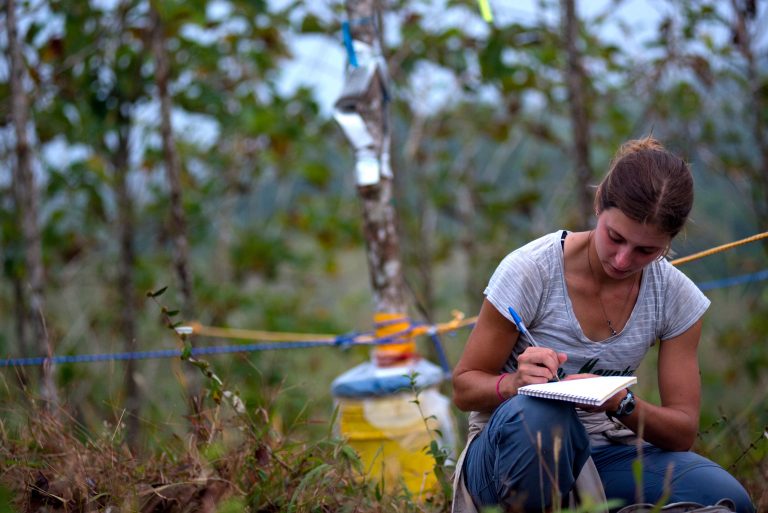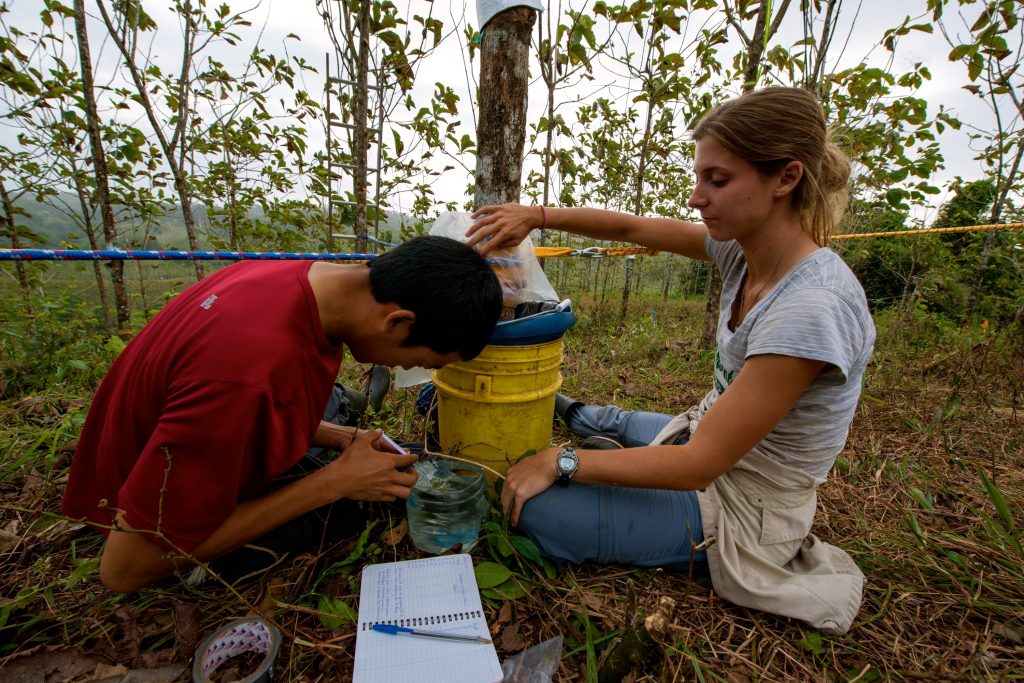Where Are They Now: Katherine Sinacore (’11)

by Office of Sustainability Staff Writer Suzy Mullins (’18)
Having spent most of her childhood years exploring the great outdoors, Wake Forest alumna Katherine Sinacore (’11) knew from early age that she wanted to integrate nature into her field of work—but, she had no idea how her passions would unfold until she stepped foot on the Wake Forest campus. As an undergraduate, Katherine interned with the Office of Sustainability, studied environmental issues in the classroom, and gained hands-on experience working with the Amazon Conservation Association during a study abroad trip to Peru. These experience as a WFU student solidified her interest in collaborative global solutions, as well as her affinity for working in the tropics.

Q: What does your Wake Forest undergraduate education mean to you?
A: WFU really exemplifies its “pro humanitate” motto in the way that it encourages students to think about how their work impacts the larger community. Out of everything, that lesson is one that has really stuck with me and influenced my work since graduating.
Q: You interned with the Office of Sustainability during your time at Wake; what projects did you work on, and what did you gain from your experiences?
A: I worked alongside intern Josh Dewitt to create the Green Team network. Together, we started a pilot program with a few departments on campus which aimed to establish a network for bolstering the achievement of sustainability goals. I learned and grew a great amount during that internship, but if I had to choose the most significant insight I acquired, it would be the importance of listening. It might sound kind of obvious, but it’s true. The participants in the Green Team network had such innovative ideas and strategies that would make their offices run most efficiently and sustainably; learning to listen and work with their suggestions, rather than impose my own values and ideas on them, was a great lesson to be reinforced. It has proved extremely valuable in my more recent work as I have collaborated with other stakeholders on environmental issues.
Q: Can you tell me about your experiences and research endeavors since you graduated from Wake Forest?
A: I am drawn to examining land management challenges and finding creative solutions which take into consideration the needs of both humanity and the environment. My particular specialization, silviculture, embodies just that—it is the art and science of managing forests to meet the needs of diverse stakeholders. For the past few years, I have been working on a collaborative project examining how tree species and certain combinations of tree species on plantations affect their growth and water use. This is important because the majority of plantations in Panama are comprised of a non-native species, teak, that has not only grown poorly but also uses a lot of water. This can be problematic in communities where potable water is limited, especially during the yearly four-month long dry season. My group was excited by the prospect of finding native tree species that could outgrow teak and use less water. After spending a year in a community downstream of the tree plantation where I had worked with limited water access, I felt even more motivated to find a solution that is socially just and environmentally sensitive. I really enjoy this type of applied work, and after I complete my Ph.D. this year, I hope to continue to explore issues related to this theme.

